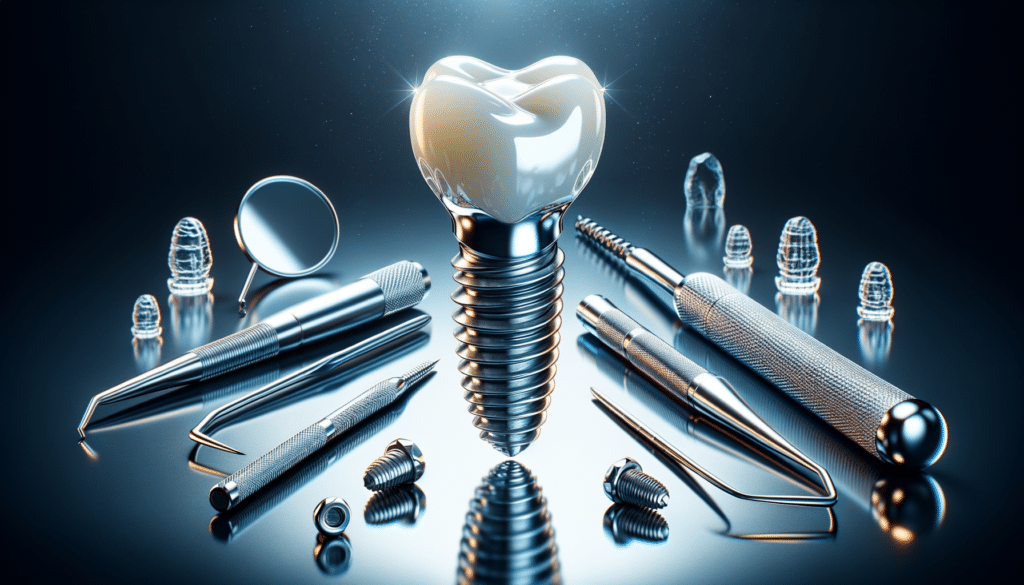Introduction to Dental Implants
Dental implants have revolutionized the field of dentistry, providing a durable and aesthetically pleasing solution for individuals with missing teeth. Unlike traditional dentures or bridges, dental implants offer a permanent solution that mimics the natural tooth structure. This advancement not only enhances the functionality of the teeth but also significantly improves the confidence and quality of life for many individuals. As we delve into the world of dental implants, we will explore their benefits, the procedure involved, and how they compare to other dental solutions.
The Procedure of Getting Dental Implants
The process of getting dental implants is methodical and involves several stages, each crucial for ensuring the success of the implant. Initially, a comprehensive assessment is conducted, which includes dental X-rays and possibly 3D images to evaluate the condition of the jawbone and surrounding structures. This assessment helps in planning the precise placement of the implant.
Once the planning is complete, the implant procedure begins with the surgical placement of a titanium post into the jawbone. This post acts as the root of the artificial tooth. The healing process, known as osseointegration, follows, where the jawbone gradually fuses with the titanium post. This can take several months but is vital for providing a stable foundation for the replacement tooth.
After the implant has fully integrated with the jawbone, an abutment is attached to the post. This serves as the connector between the implant and the artificial tooth. Finally, a custom-made crown is placed over the abutment, completing the process. The result is a natural-looking and functional tooth that integrates seamlessly with the existing teeth.
Benefits of Dental Implants
Dental implants offer numerous advantages over traditional tooth replacement options. Here are some of the key benefits:
- Durability: With proper care, dental implants can last a lifetime, making them a cost-effective long-term solution.
- Natural Appearance: Implants are designed to look and feel like natural teeth, enhancing both appearance and comfort.
- Improved Oral Health: Unlike bridges, implants do not require the alteration of adjacent teeth, preserving natural tooth structure.
- Bone Health: Implants help maintain jawbone density, preventing bone loss that typically follows tooth loss.
These benefits make dental implants a highly regarded option in restorative dentistry, offering a solution that not only addresses aesthetic concerns but also contributes to overall oral health.
Comparing Dental Implants with Other Options
When considering tooth replacement options, it is important to compare dental implants with other available solutions such as dentures and bridges. While dentures are a non-invasive and cost-effective option, they may lack the stability and comfort that implants provide. Dentures can also affect speech and eating habits, requiring frequent adjustments over time.
Bridges, on the other hand, offer a more stable solution compared to dentures but often necessitate the alteration of healthy adjacent teeth. This can compromise the integrity of natural teeth over time. Additionally, bridges do not address the issue of bone loss in the jaw, which can occur after tooth extraction.
In contrast, dental implants provide a standalone solution that does not impact adjacent teeth and helps preserve bone density. While the initial cost and time investment for implants may be higher, the long-term benefits often outweigh these considerations, making them a preferred choice for many patients.
Conclusion: The Future of Dental Implants
Dental implants represent a significant advancement in dental technology, offering a reliable and aesthetically pleasing solution for tooth replacement. As technology continues to evolve, the procedures associated with dental implants are becoming more efficient and accessible. With their numerous benefits, dental implants are likely to remain a top choice for patients seeking a long-lasting and natural-looking solution to missing teeth.
In summary, dental implants provide a unique combination of durability, functionality, and aesthetics, making them a standout option in restorative dentistry. As more people become aware of their benefits, the demand for dental implants is expected to grow, further solidifying their role in modern dental care.





